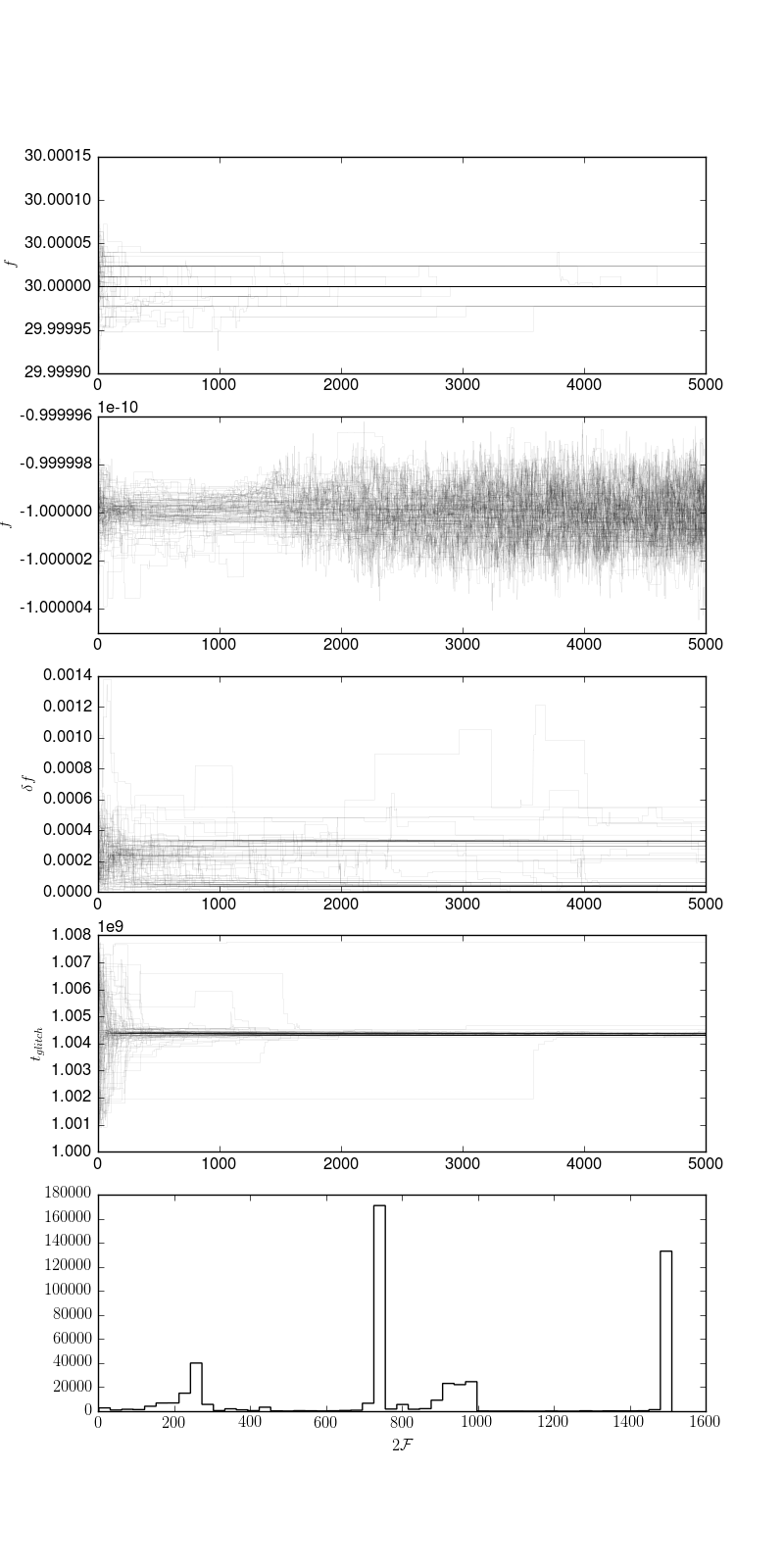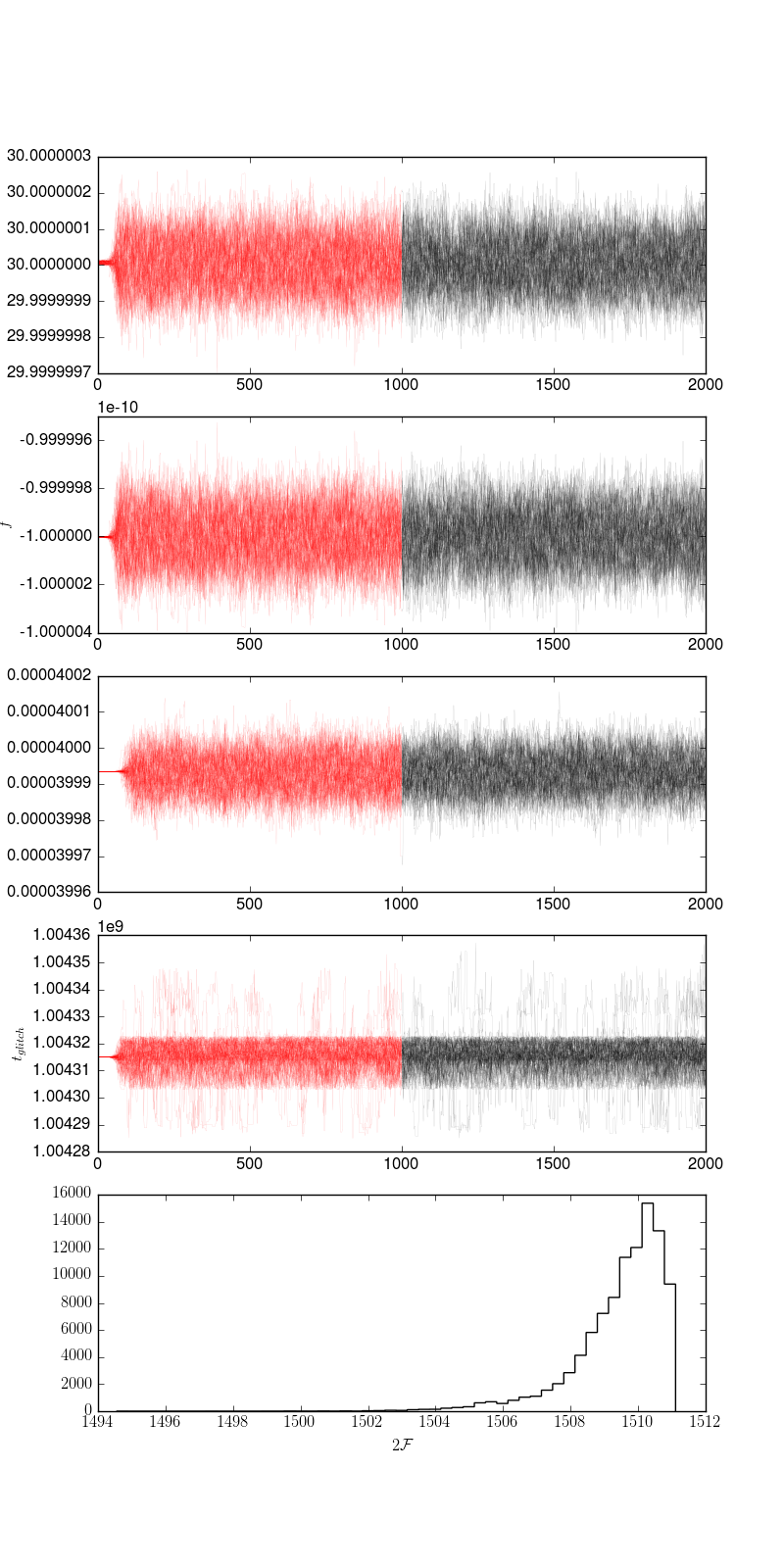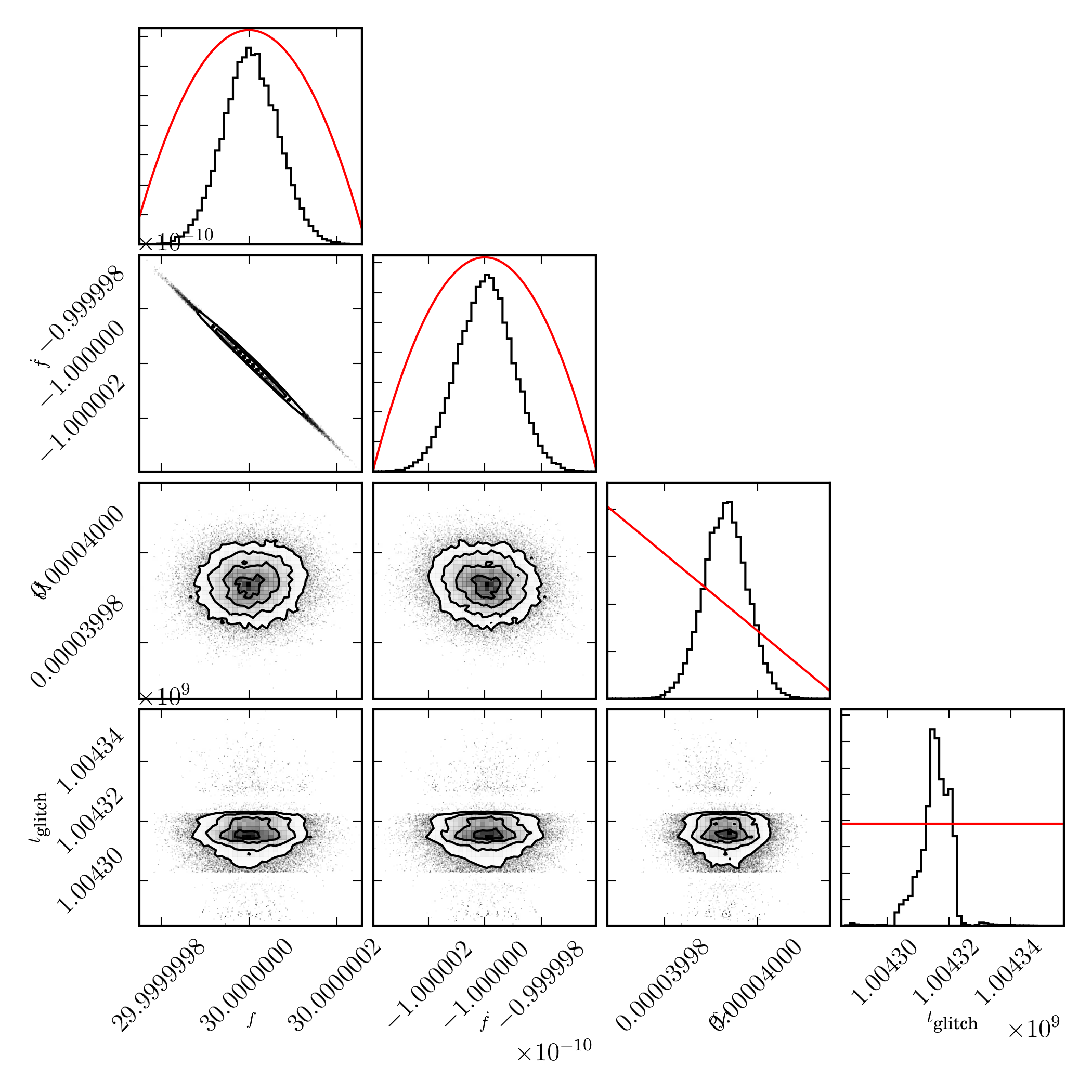Semi-coherent glitch search on data with a single glitch using MCMC
In this example, based on this script, we show the basic setup for a single-glitch search. We begin, in the usual way, with defining some the prior
import pyfstat
F0 = 30.0
F1 = -1e-10
F2 = 0
Alpha = 5e-3
Delta = 6e-2
tref = 362750407.0
tstart = 1000000000
duration = 100*86400
tend = tstart + duration
theta_prior = {'F0': {'type': 'norm', 'loc': F0, 'scale': abs(1e-6*F0)},
'F1': {'type': 'norm', 'loc': F1, 'scale': abs(1e-6*F1)},
'F2': F2,
'Alpha': Alpha,
'Delta': Delta,
'delta_F0': {'type': 'halfnorm', 'loc': 0,
'scale': 1e-5*F0},
'delta_F1': 0,
'tglitch': {'type': 'unif',
'lower': tstart+0.1*duration,
'upper': tstart+0.9*duration},
}For simplicity, we have chosen a prior based on the known inputs. The important
steps here are the definition of delta_F0, delta_F1 and tglitch, the
prior densities for the glitch-parameters. We then use a parallel-tempered
set-up, in addition to an initialisation step and run the search:
ntemps = 4
log10temperature_min = -1
nwalkers = 100
nsteps = [5000, 1000, 1000]
mcmc = pyfstat.MCMCGlitchSearch(
'semi_coherent_glitch_search_using_MCMC', 'data',
sftfilepath='data/*_glitch*sft', theta_prior=theta_prior, tref=tref,
tstart=tstart, tend=tend, nsteps=nsteps, nwalkers=nwalkers,
scatter_val=1e-10, nglitch=1, ntemps=ntemps,
log10temperature_min=log10temperature_min)
mcmc.run()
mcmc.plot_corner(add_prior=True)
mcmc.print_summary()The output png's for the initialisation and burnin/production steps:


